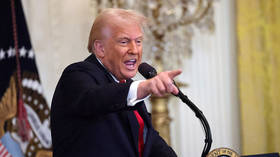Richard Koo: Nomura Chief Economist
The governments of the World's leading economies should boost spending in order to fight recession according to Nomura’s Chief Economist, Richard Koo.
RK: “Japan actually fell into this recession, what I call a balance sheet recession, because everybody is minimizing debt instead of maximizing profits. Japan faced a fall of asset prices – 87% from the peak. Tokyo land prices fell 87%, Osaka down 87% and Kyoto down 87%. Just imagine if Moscow prices are down 87%, St Petersburg down 87%! What kind of economy do you think would be left in this part of the world? So on one hand we had this massive collapse in asset prices, private sector balance sheets all under water, everybody paying down debt. No one borrowing and investing money. And then we had this GDP never falling below this peak of the bubble. So how did we do it? We did it because government came in and borrowed that money, that household were saving, companies were paying down debt. Government came in, took that money and spent it – put that back into the income stream. There’s no reason for the economy to weaken, because the money is back into circulation again.
The whole concept of a balance sheet recession, that I came up with, was entirely new to economics. When I came up with this notion to describe what happened to Japan, people would say ‘oh no, it can’t be that. If only Bank of Japan only did a little more monetary easing, everything will be fine.’ Mr Bernanke of the Federal Reserve actually told the Bank of Japan that if you buy tomato ketchup, the Japanese economy would improve. Tomato ketchup! So everybody was bashing Japan. Because they thought if only the Bank of Japan would only print money, the Japanese economy would pick up.
Now the same Mr Bernanke is finding himself, in the United States, that even with all the actions of the Federal Reserve, nothing is happening. So he is in the same position the Bank of Japan was in 15 years ago. And he even said, in the October testimony to the Congress, that maybe we need fiscal spending, Government spending.”
RT: Have you analysed the way the Russian Government is trying to combat the crisis?
RK: “The story here, I understand, is much more complicated, because of this foreign component. So many companies bought money from abroad. And I think this idea that Russian companies can just borrow from abroad, and short circuit all the measures that the Russian Central Bank is trying to put in, needs to be addressed. Because today the Russian Central bank is keeping interest rates relatively high, trying to push inflation rates down. But if all these companies just borrow from abroad, the central Bank is basically losing its effectiveness. And I don’t think that’s good for Russia. So I think there should be some ways to control, or make people think twice, about going and borrowing from abroad. Because in the current situation it could cause huge problems.”














